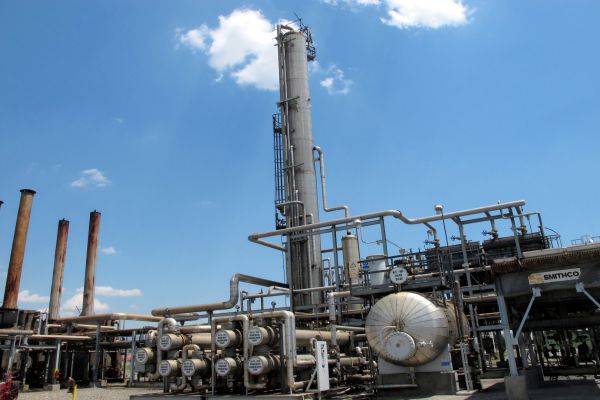Guyana is intent on having its own refining capacity, said Minister of Natural Resources, Vickram Bharrat. He pointed out that this makes more “economic sense”, instead of using facilities in neighbouring Trinidad and Tobago.
Prime Minister, Keith Rowley had offered up TT’s facilities for Guyana’s use, as the country pursues a massive gas-to-energy project, with the potential to enter the refined products market.
But Guyana has already kick-started the process to establish its own refinery.
“…so it’s not that we have refused the Prime Minister Rowley because of any other reason other than we are moving towards having our own. I am sure you would have seen the request for proposals in the newspaper, I think [we] received nine proposals,” he clarified, stating that the proposals are under evaluation.
“If we have it in-country, then quite honestly, it makes no sense that we refine out of Guyana because we still have to take it to another country, have it refined and then bring back those products again, rather than doing it right here. It makes really good economic sense to do it in-country,” Minister Bharrat continued.
TT’s refinery was mothballed back in 2018 following the restricting of Petrotrin, the Twin Island Republic’s national oil company. The upstream portion of Petrotrin formed what is now known as Heritage Petroleum while the refinery was set for lease or sale.
Quanten Consortium Angola LLC, Environmental Solutions Inc. and SPEC Energy DMCC are the latest US-based companies bidding to build Guyana’s 30,000 barrels per day modular refinery.
CH4 Guyana Inc. & Lindsayca Inc. in collaboration with Sol Guyana Inc.; Freight N Cargo Logistics Inc.; DRL Engineering in collaboration with Globe Engineering Supplies & Services FZC (GESS) and Berbice Green Refining Inc. in a joint venture with ARC Energy, Polaris EPC, and Barson SG are the other firms bidding to build the refinery.
The Request for Proposals (RFP) was issued in October for the refinery to be constructed at the mouth of the Berbice River in the vicinity of ‘Crab Island’. Construction should start within Q1 2023 and be completed two years later. The refinery will be owned and operated by the private sector, with no investment interest or ownership role taken by the government.
It will provide to the selected firm 30 acres of land, a 10-year tax holiday, a supply of feedstock (oil) from Guyana’s share of profit oil at market prices and access to the domestic market for the sale of refined products (if desired).
The refinery is being built to ensure Guyana’s energy security.



